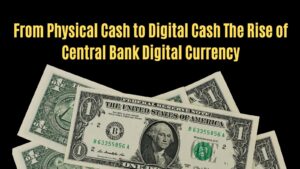What is DeFi in simple terms?

what is defi in simple terms
Defining Defi: An Overview of Decentralized Finance
Defi (Decentralized Finance) is a rapidly growing movement in the world of finance. It is a set of financial protocols, applications and products created on decentralized networks such as Ethereum, Bitcoin and other blockchains. Defi is often described as the “open finance” movement because of the flexibility and decentralization of these technologies, as well as the ability for anyone to access and use them.
Facilitating Open Access: Defi’s Core Purpose
At its core, Defi’s purpose is to facilitate open access to financial services such as lending, borrowing, savings, and payments. All of its products are non-custodial, meaning that users are able to access financial services without relying on a third party. This allows individuals to take full control of their financial assets and take part in financial transactions that occur on the blockchain.
Lending, Borrowing and More: Popular Use Cases of Defi
One of the most popular use cases of Defi is lending and borrowing. These platforms allow users to borrow and lend tokens to each other and be automatically matched at a market rate. This opens up opportunities for new markets to be created as well as allows more liquidity to be injected into the system. These platforms usually give users the ability to set their own terms of the loan, including the terms of repayment, the interest rate charged and the duration of the loan.
Decentralized Exchanges: Removing the Need for Centralized Third Parties
Another popular Defi-related application is decentralized exchanges (DEX). DEXs are non-custodial trading platforms that allow users to exchange cryptocurrencies for fiat or other digital assets without a centralized third party. By removing the need for a centralized platform, users are able to trade more freely and securely.
Tokenization: Making Real-World Assets More Accessible
Defi also has applications in asset tokenization. Tokenization is the process of taking a real-world asset, such as a house or a car and converting it into a digital asset. This allows the asset to be bought, sold and transferred efficiently while providing more liquidity and access to the asset. This use case of Defi has potential applications in real estate, capital markets and digital collectables.
Revolutionizing Finance: Defi’s Potential to Change the Game
Overall, Defi has the potential to revolutionize the way people access and use financial services. By enabling decentralized, trustless and censorship-resistant services, it allows users to interact with financial services in a secure and affordable way. With more and more use cases being developed, it is likely that Defi will continue to be a driving force in the world of finance.




